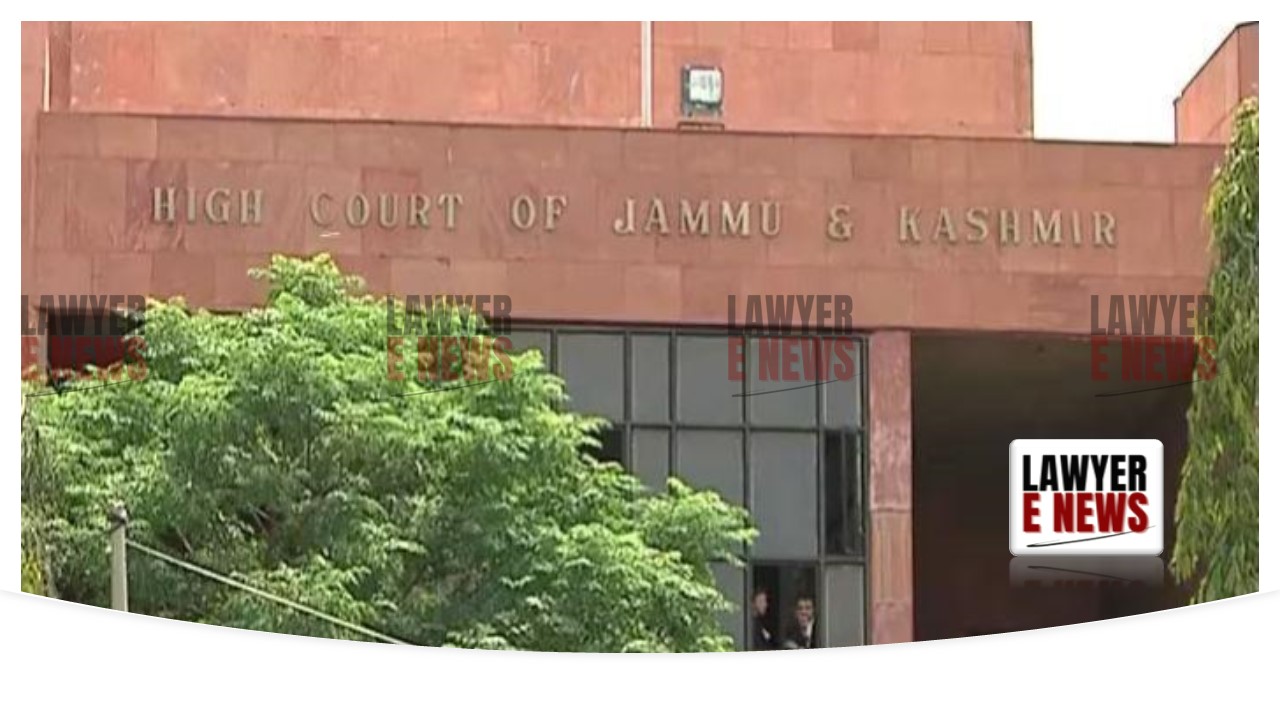-
by Admin
15 February 2026 2:16 AM



High Court Denies Appeal Against Acquittal in Minor’s Rape Case, Emphasizes Lack of Corroborative Medical Evidence and Age Discrepancies
The High Court of Jammu & Kashmir and Ladakh at Jammu has dismissed an appeal by the Union Territory against the acquittal of Ravi Rakwal in a rape case involving a minor. The bench, comprising Justices Atul Sreedharan and Puneet Gupta, upheld the trial court’s decision, highlighting the absence of corroborative medical evidence and unresolved age discrepancies. The judgment reiterates the importance of corroborative medical evidence in cases involving sexual violence, particularly when the victim’s testimony lacks supporting evidence.
The incident in question allegedly took place on March 9, 2018, when the prosecutrix, a 13-year-old girl, accused Ravi Rakwal of entering her hutment and forcibly raping her in the absence of her parents. The only other person present was her younger brother, aged three. The prosecutrix reported the incident to the police on March 13, 2018, after an initial failed attempt to lodge a complaint on the day of the incident. A medical examination conducted on March 10, 2018, recorded as an assault but not a sexual assault, showed no injuries, signs of recent intercourse, or intact hymen, which critically influenced the court’s assessment.
Credibility of Medical Evidence: The court underscored the critical role of medical evidence in corroborating allegations of sexual assault. “The absence of injuries and the findings of the medical examination conducted within 19 hours of the alleged incident are pivotal in our assessment,” the bench noted. The Medical Legal Certificate (MLC) recorded an assault but did not specify sexual assault, and the vaginal smear showed no signs of recent intercourse, which weakened the prosecution’s case.
Prosecutrix’s Testimony: Addressing the detailed testimony of the prosecutrix, the court observed, “While the testimony was graphic and explicit, the lack of medical corroboration raises significant doubts.” The prosecutrix’s account included threats by the accused and detailed descriptions of the assault, but the medical examination did not reflect any physical injuries consistent with such a violent encounter.
Age Discrepancy: The court also noted discrepancies regarding the prosecutrix’s age. The school register, presented as a photocopy, indicated she was under 13, but there was no corroborative testimony or original document produced. A radiological report estimated her age between 13 and 15 years, creating further uncertainty. “The unresolved age discrepancy critically affects the prosecution’s case,” the court remarked.
The judgment emphasized that while the testimony of a rape victim alone can be sufficient for conviction if credible, in this case, the medical evidence did not support the prosecutrix’s account. “The medical report, prepared just 19 hours after the alleged incident, showed no signs of recent intercourse, which would have been expected given the detailed nature of the prosecutrix’s testimony,” the court stated.
Justice Atul Sreedharan remarked, “The absence of corroborative medical evidence, despite the detailed account provided by the prosecutrix, necessitates the benefit of doubt being extended to the accused.”
The High Court’s decision to dismiss the appeal underscores the judiciary’s commitment to a thorough and balanced assessment of evidence in sexual violence cases. By upholding the trial court’s acquittal, the judgment highlights the necessity of corroborative medical evidence and the importance of resolving age discrepancies in such cases. This decision is expected to influence future cases, reinforcing the standards for evidence required to secure convictions in sexual assault cases.
Date of Decision: 29th May 2024
Union Territory of Jammu and Kashmir vs. Ravi Rakwal
